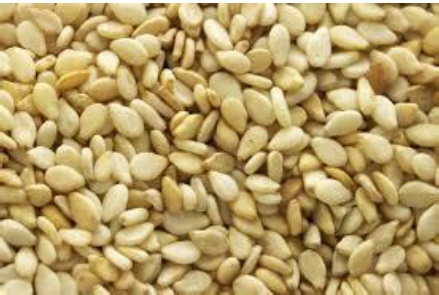Here is the first part of this series. Agro Business in Nigeria Part I
Here is the Second part of this series. Agro Business in Nigeria Part II
Today we shall be profiling the agricultural products and raw materials that are fairly abundant in Nigeria and which has demand outside the shores of this country and also their location locally.
SESAME SEED PRODUCT PROFILE

Description
Sesame seeds (also called benni seed) are the seeds of the tropical annual Sesamum indicum. The species has long history of cultivation, mostly for its yield of oil. The original area of domestication of sesame is obscure but it seems likely to have first been brought into cultivation in Asia or India. The plant is usually 60 to 120cm tall and the fruit is a dehiscent capsule held close to the stem. When ripe, the capsule shatters to release a number of small seeds. The seeds are protected by a fibrous ‘hull’ or skin, which may be whitish to brown or black depending on the variety. 1000 seeds weigh some 4-8g. The seeds have a high oil content of 44-60%.
Harvest
Harvesting begins in late December and continues trough July. Each producing area stated in the next section below (Location) has only one season.
Location
The major producing areas in order of priority are Nasarawa, Jigawa, and Benue States. Other important areas of production are found in Yobe, Kano, Katsina, Kogi, Gombe and Plateau States. The major marketing centers (towns and states) of sesame seeds in Nigeria.
Types and Varieties
There are 3 types of sesame (and these include White, Black and Brown/Mixed sesame seeds). However, only two of these are majorly produced in Nigeria and these includes:
-
White/raw – Food grade used in bakery industry. 98 – 100% whitest grade seeds.
-
Brown/Mixed = Primarily oil-grade
The white (Food grade) seed is grown around the town of Keffi, Lafia/Makurdi, Doma, and in Nassarawa, Taraba, and Benue States. It is easier to sort and the Fulani/Denin people consume sesame locally. The Brown/Mixed grows in the North, in Kano State and in Jigawa Sate near Hadejia, and somewhat in the southern part of Katsina state.
Uses
Most sesame is processed directly into oil by the grower or within the producing region, but can also be sold in various stages of processing, for various uses, such as meal, paste, confections, and bakery products.
Export Market
The major import of sesame seeds in the world is Japan while the major consuming markets in the EU are Greece, Germany, the Netherlands and the UK. In the past, the bulk of sesame was imported from China. Increasingly, other sources such as India, Sudan and, most recently, Pakistan, are taking the market share. The USA is the fifth largest import market with a steady demand for over 50,000 tons per year.
For enquiries kindly contact via WhatsApp this mobile Number 08094635254 or place a call to 07063396991